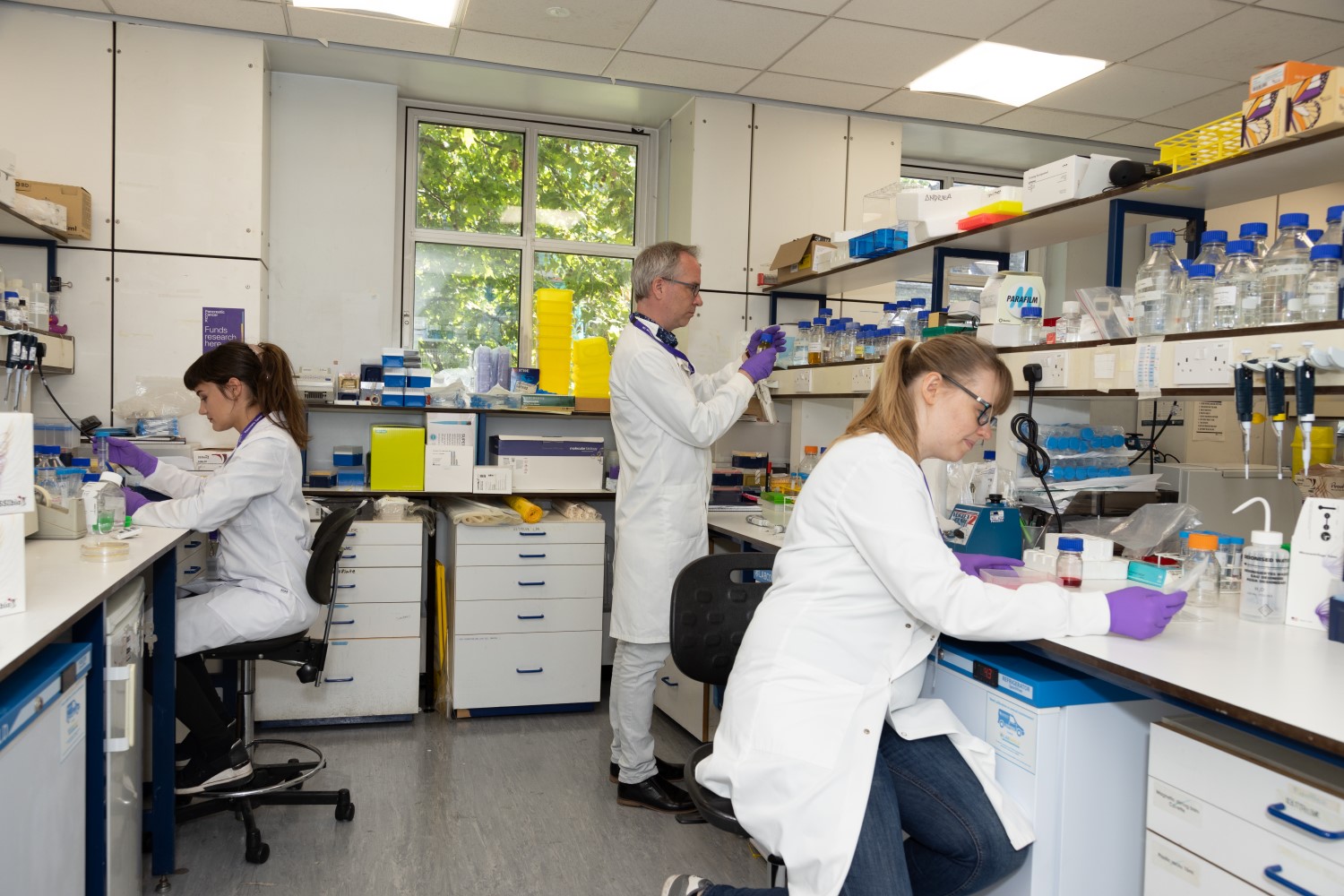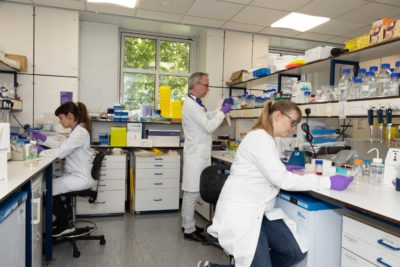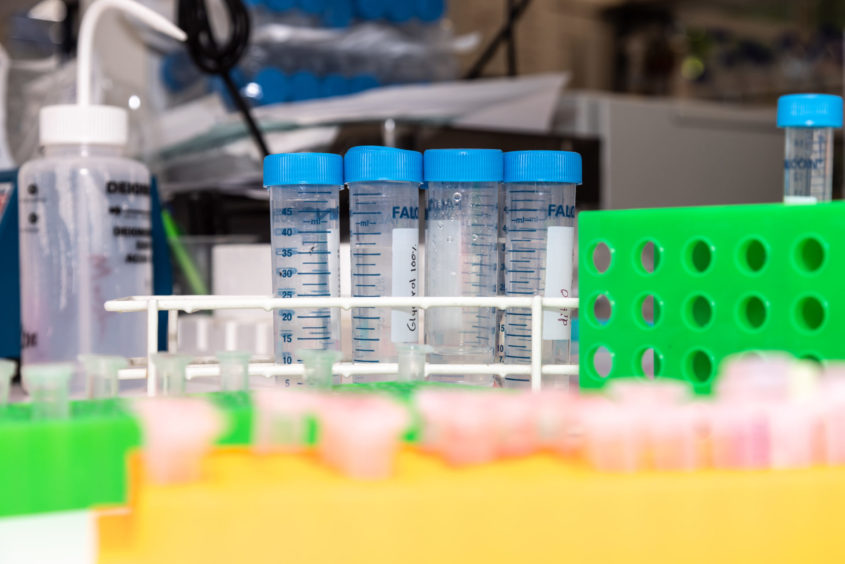Find out more about our research
By investing in research, we’ll support the breakthroughs so desperately needed for people with pancreatic cancer.


In 2021/22, your support meant that we could fund £1.8m in research grants – more than ever before – bringing our total research spend to £10m. Our Head of Research, Dr Chris MacDonald, explains how we’re using this money to give our researchers the best chance of making breakthroughs.
“I’m always blown away by the kindness and passion of our supporters – and this year, your generosity has been incredible. I personally can’t thank you enough, because it’s your support that enables my team, and the world-class researchers we work with, to deliver ground-breaking, innovative projects that will ultimately save lives.
As always, we’ve invested your money directly into the biggest challenges facing pancreatic cancer: getting people diagnosed earlier, and receiving better treatment so that they can survive. And, to do this, we’re funding innovative projects and growing the pancreatic cancer research community to focus attention and bring us closer to the breakthroughs that will make a real difference to the lives of people with pancreatic cancer.
"I personally can’t thank you enough, because it’s your support that enables my team, and the world-class researchers we work with, to deliver ground-breaking, innovative projects that will ultimately save lives."
There’s still no simple way to diagnose pancreatic cancer early enough to make it treatable for most people. 80% are diagnosed at late stages – too late for life-saving treatment. But we’re working to change this.
I’m delighted to say that our Early Diagnosis Research Alliance, led by Professor Steve Pereira, have already made huge progress. Scientists from across the UK are increasing the accuracy of pancreatic cancer tests, looking at how we can better approach diagnosis and developing GP referral tools.
Here’s just a snippet of some of the exciting progress we’ve seen this year:
But there’s more exciting progress to come in our early diagnosis research over the coming year that I can’t wait to share with you, so watch this space for more updates!
Find out more about our work in early diagnosis research
Pancreatic cancer is incredibly hard to treat. And, devastatingly, 70% of people with pancreatic cancer don’t receive any treatment at all. This is unacceptable, and we’re funding pioneering projects to make sure that everyone with pancreatic cancer gets the treatment and care they need.
The Pancreatic Cancer UK Grand Challenge has already brought us one step closer to using immunotherapy to treat pancreatic cancer, by showing that there is huge potential for CAR-T cell therapy to target and destroy pancreatic cancer.
This year, we’ve funded some innovative projects tackling the biggest challenges in treatment and care:
Find out more about our work in treatment and care
Unfortunately, because pancreatic cancer hasn’t been given the attention it needs over the past 50 years, there are simply not enough researchers in the community. Because of this, we also need far more unity and collaboration between those researchers to drive the progress that this cancer desperately needs.
We’re changing this by creating schemes, providing dedicated resource and support, and developing approaches to funding that build capacity in the community both in terms of quantity and quality.
This year, we’ve dedicated £1m to supporting high-calibre, early career pancreatic cancer researchers by awarding five Career Foundation Fellowships, with projects ranging from reducing the side-effects of chemotherapy, to identifying how pancreatic cancer first develops.
I could not be more excited to support these talented young researchers to put their expertise and innovative thinking into better understanding, diagnosing treating pancreatic cancer – and I know that the future of pancreatic cancer research is safe in their hands.
I know that so many of you are passionate about our research because you truly believe that it will save lives in the future.
And so do we. That’s why funding innovative, pioneering research will continue to be a huge priority for us in the coming years. We have some incredibly exciting projects on the horizon that have the potential to deliver the breakthroughs pancreatic cancer desperately needs.
I can’t wait to share this progress with you as these projects develop, because none of this would be possible without your support.”
By investing in research, we’ll support the breakthroughs so desperately needed for people with pancreatic cancer.
